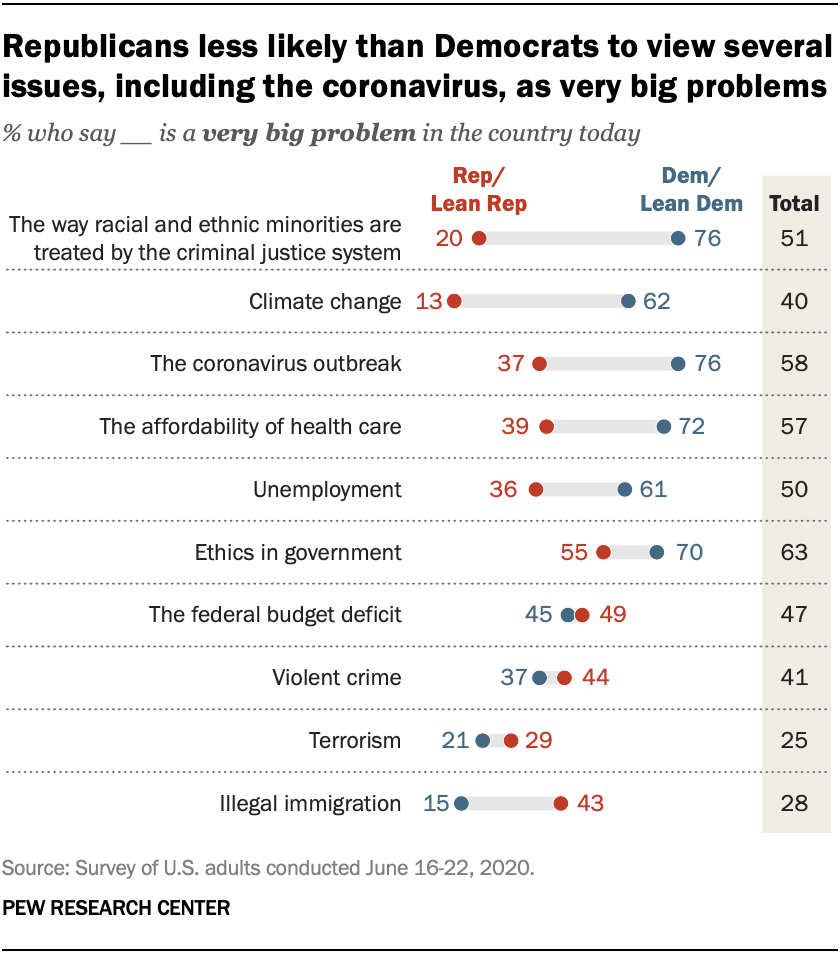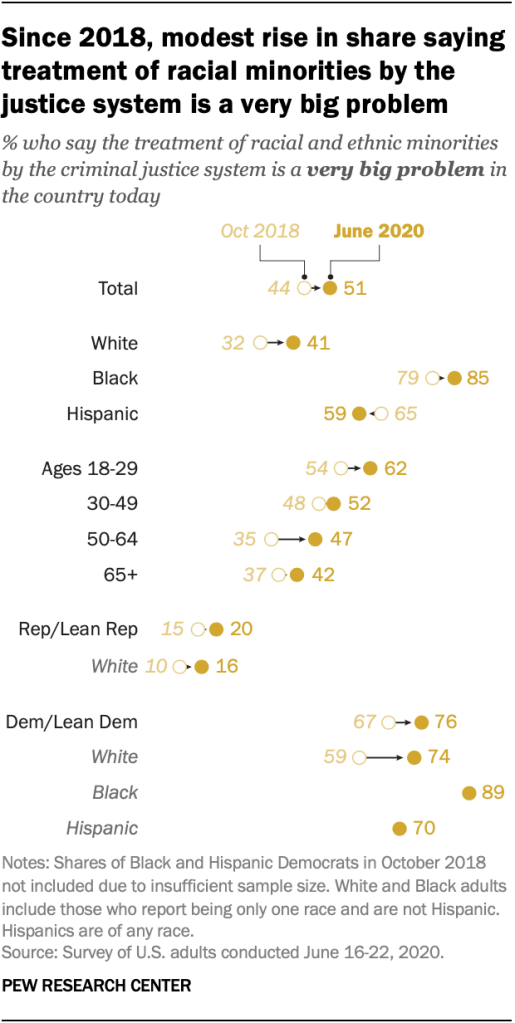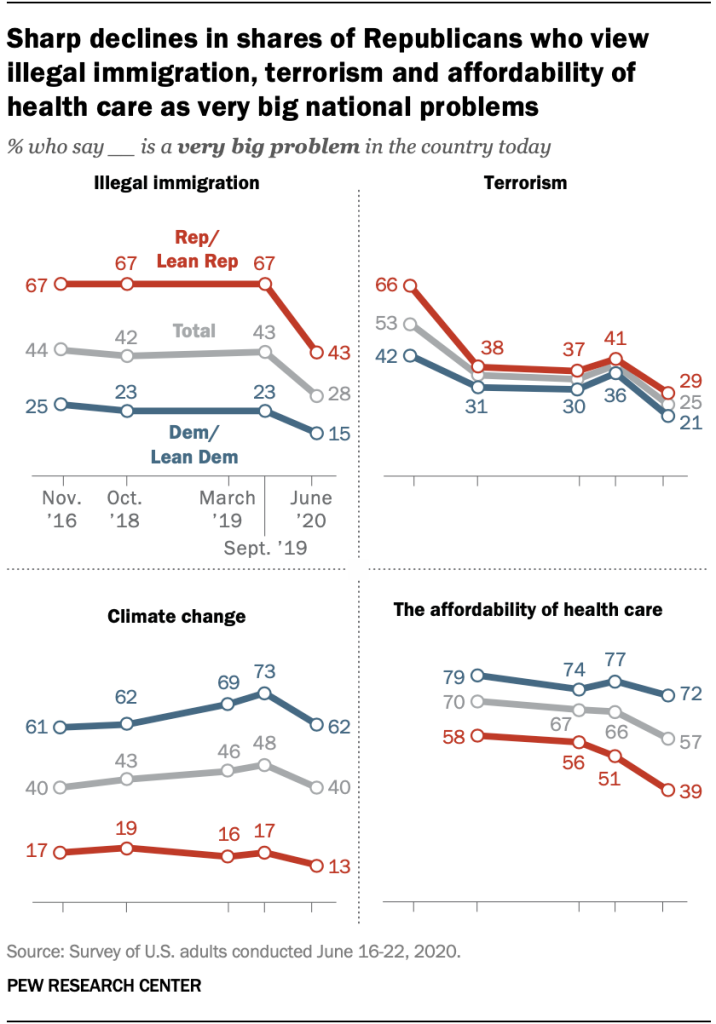Republicans and Democrats largely disagree over the seriousness of several major problems currently facing the country, even as the United States grapples with issues including a surge in new coronavirus cases and an economic recession.
Democrats are generally far more likely than Republicans to view several concerns – including how racial and ethnic minorities are treated by the criminal justice system, the coronavirus outbreak and unemployment – as very big problems in the country, according to a Pew Research Center survey conducted June 16 to 22 (before the most recent spike in coronavirus cases in several states).
For the most part, partisan differences are over the severity of these problems. For example, large majorities in both parties – 95% of Democrats and Democratic-leaning independents and 72% of Republicans and Republican leaners – agree the coronavirus outbreak is either a very big or moderately big problem for the country. However, roughly twice as many Democrats (76%) as Republicans (37%) say it is a very big problem.
Pew Research Center conducted this study to understand how Americans view the major problems facing the country today. For this analysis, we surveyed 4,708 U.S. adults in June 2020. Everyone who took part is a member of Pew Research Center’s American Trends Panel (ATP), an online survey panel that is recruited through national, random sampling of residential addresses. This way nearly all U.S. adults have a chance of selection. The survey is weighted to be representative of the U.S. adult population by gender, race, ethnicity, partisan affiliation, education and other categories. Read more about the ATP’s methodology.
Here are the questions asked for this report, along with responses, and its methodology.
The differences between partisans are even larger in views of how the criminal justice system treats racial and ethnic minorities. About three-quarters of Democrats (76%) say this is a very big problem, compared with just 20% of Republicans. Among 10 national problems included in the survey, only climate change ranks lower as a very big problem for Republicans (13%).
Among the U.S. public overall, views on whether the criminal justice system’s treatment of minorities is a very big problem have changed modestly since 2018. Currently, 51% say this is a very big problem, compared with 44% in October 2018.
Increasing shares across most demographic and partisan groups view the treatment of minorities by the justice system as a major problem, but the change among white Democrats has been especially pronounced. Around three-quarters of white Democrats (74%) now say the treatment of racial and ethnic minorities by the criminal justice system is a very big problem, up from 59% two years ago. (Still, a larger share of Black Democrats – 89% – say this is a very big problem.)
Views on the treatment of racial and ethnic minorities by the criminal justice system have shifted dramatically among older white Democrats in particular. In 2018, 53% of white Democrats ages 50 and older said the treatment of minorities by the criminal justice system was a very big problem. Today, 72% hold this opinion. The change has been smaller among Democrats under 50: 75% now say this a very big problem, compared with 65% who said this 2018.
Among white Republicans, just 16% say the criminal justice system’s treatment of minorities is a very big problem, compared with 10% in 2018.
The shares of Americans who view some other concerns as major problems have fallen since 2018, largely because of sizable declines among Republicans.
Just 43% of Republicans, for example, now view illegal immigration as a very big problem, down from 67% who said this last year and in the two prior years.
Only 15% of Democrats say illegal immigration is a very big problem, compared with 23% who said this in both 2018 and 2019.
Republicans also are far less likely to view the affordability of health care as a very big problem today than in 2019 (39% now, 51% then). The change among Democrats has been far more modest (72% now, 77% then).
In both partisan coalitions, fewer Americans now say terrorism is a major national problem than did so last year.
Note: Here are the questions asked for this report, along with responses, and its methodology.



